Hey you: Play some pinball
This has been a year of big, beautiful games that seem to stretch on forever. You're probably just now putting the finishing touches on a full run of Batman: Arkham Knight or The Witcher 3 (New Game+, anyone?). Perhaps you've been gallantly sprinting on the Destiny treadmill in preparation for The Taken King. And it won't be long before you're diving into the sprawling open worlds of Metal Gear Solid 5 and Fallout 4. But while those games are (or almost assuredly will be) stellar, plowing through that much rich content without taking a breather has diminishing returns, to the point that these colossal game worlds - gorgeous locales peppered with NPCs to chat up and baddies to beat down - can feel positively exhausting.
What you need is a chance to get back to basics; to narrow your focus on a set of challenging, achievable goals without being distracted by the clutter of sidequests, the excess of cutscenes, or collectibles numbering in the zillions. What you need is a way to test your hand-eye coordination in short, thrilling bursts, without getting ensnared in a web of upgradeable abilities or lost in the details of an epic narrative spanning dozens of hours. What you need, methinks, is a few rounds of virtual pinball, the best video game palate cleanser around.
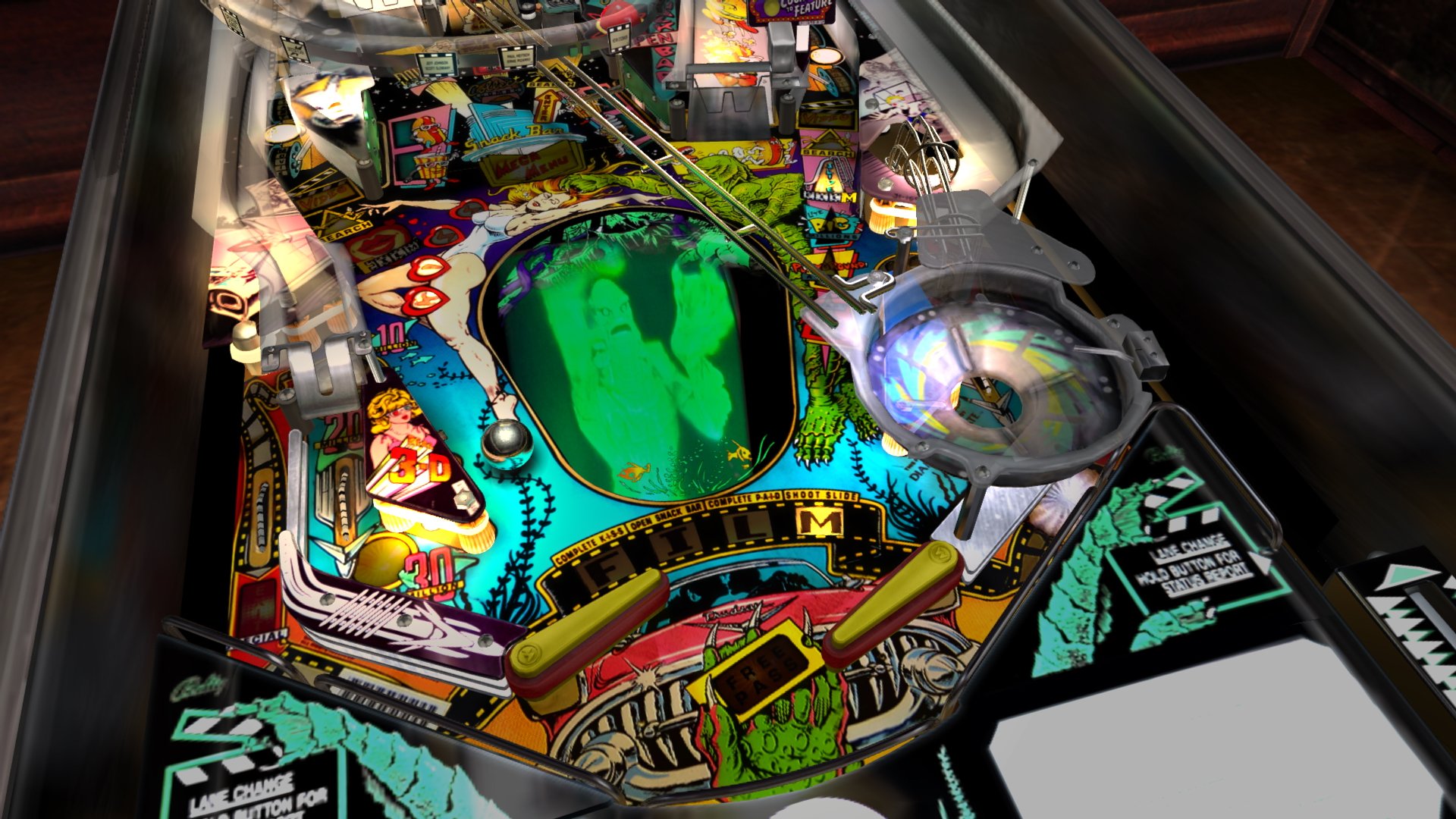
Pinball seems to be at the periphery of the mainstream gamer's consciousness, and for good reason - it can be intimidating. In the real world, most people haven't had a chance to saunter up to a pinball machine and really get to know it, provided they've even set foot in an arcade before. Without a pocketful of quarters or the power of Free Play, a beginner will probably view pinball as a few minutes of frustrating, fleeting, cost-inefficient chaos, as they mash the flippers to little effect and breeze through three balls before they've even gotten their bearings. But disengaging after you've taken a few Game Over lumps means you never get to experience the majesty of mastering a well-designed pinball table.
Where the initiate might see a confined space with limited pathways, the pinball wizard beholds a network of interconnected ramps and combo skillshots that weave together into a Moebius strip of point-scoring. With a keen eye and steady hand, the flippers will feel like an extension of your fingers as you flick the ball towards your desired bullseye, building up the kind of muscle memory inherent to any demanding test of your gaming reflexes. And inevitably, you're going to have to deal with the random nature of an errant bounce or a flubbed shot - which brings a new kind of frantic excitement, as you try to calculate and react to the ball's trajectory at blistering speeds. All these gaming highs can transpire in the space of seconds, over and over again, enveloping your concentration until you achieve a state of leaderboard-climbing nirvana.
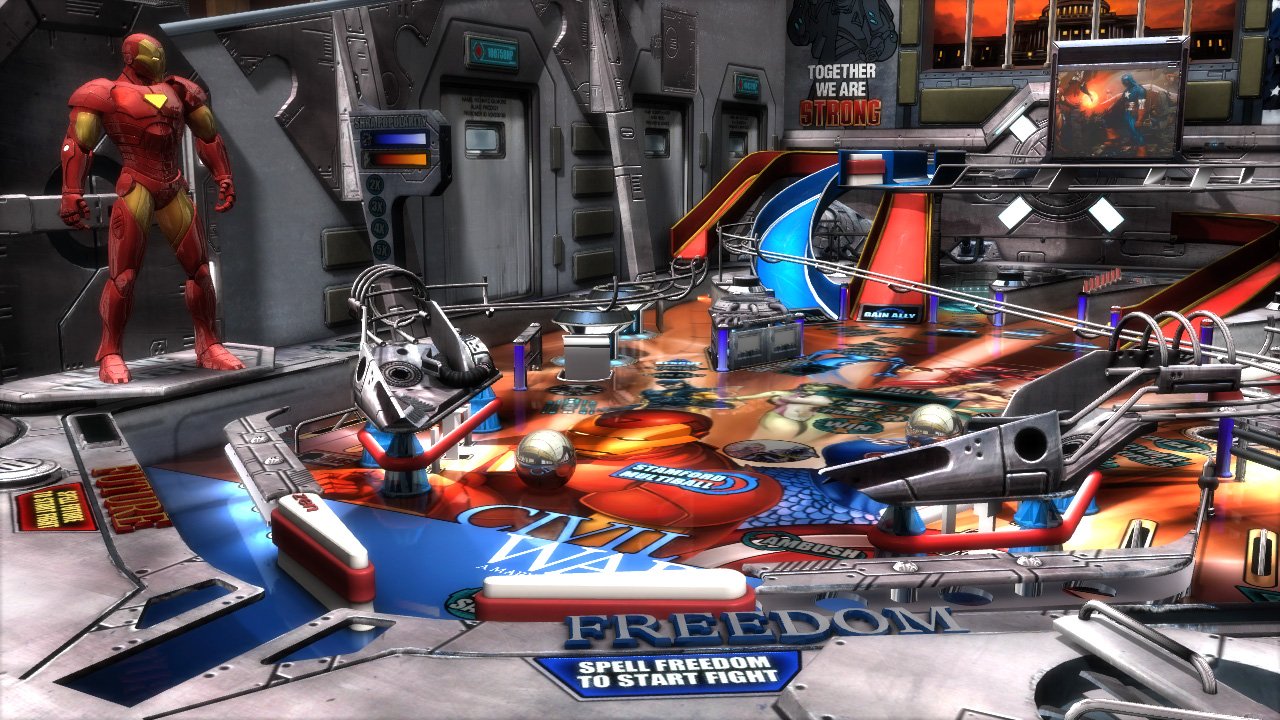
Playing pinball in digital form can help you get to that higher plane of pin-existence. With a downloadable table, you've got all the time you need to get in the zone, without the monetary distraction of continuously inserting coins, or feeling like a jerk for bogarding a Free Play table while others anxiously await their turn. Though virtual pinball has been around for decades, most gamers' exposure to the genre dates back to Sonic Spinball, Pokemon Pinball, or the Space Cadet table included with every copy of Windows XP. Those were all great for their time, but virtual pinball has come a ridiculously long way since then, able to convincingly mimic the solid, mechanical physicality of actual tables. It may be a simulation, but the silver ball travels with a weighty, palpable speed, bumpers still bounce with an energetic kick, and the flippers flip with a satisfying, audible snappiness. Virtual pinball offers all the electrical wonder of a real-world table, with the convenience, flair, and connectivity of a video game added on top.
Right now, there are two reigning champions in the realm of virtual pinball, each with its own distinct, first-rate approach. For those who've dabbled with actual machines at their local arcade, bar, or movie theater, there's The Pinball Arcade, which perfectly recreates a variety of real-world table layouts, right down to the flicker of every light bulb, the curvature of every ramp, and the delightful animations on those eye-catching Dot Matrix Displays. If you've got fond memories of being entranced by a pinball table during the '80s or '90s, there's a good chance that it's in Pinball Arcade, exactly as you remember it and priced at an infinitesimal fraction of the actual machine's cost.
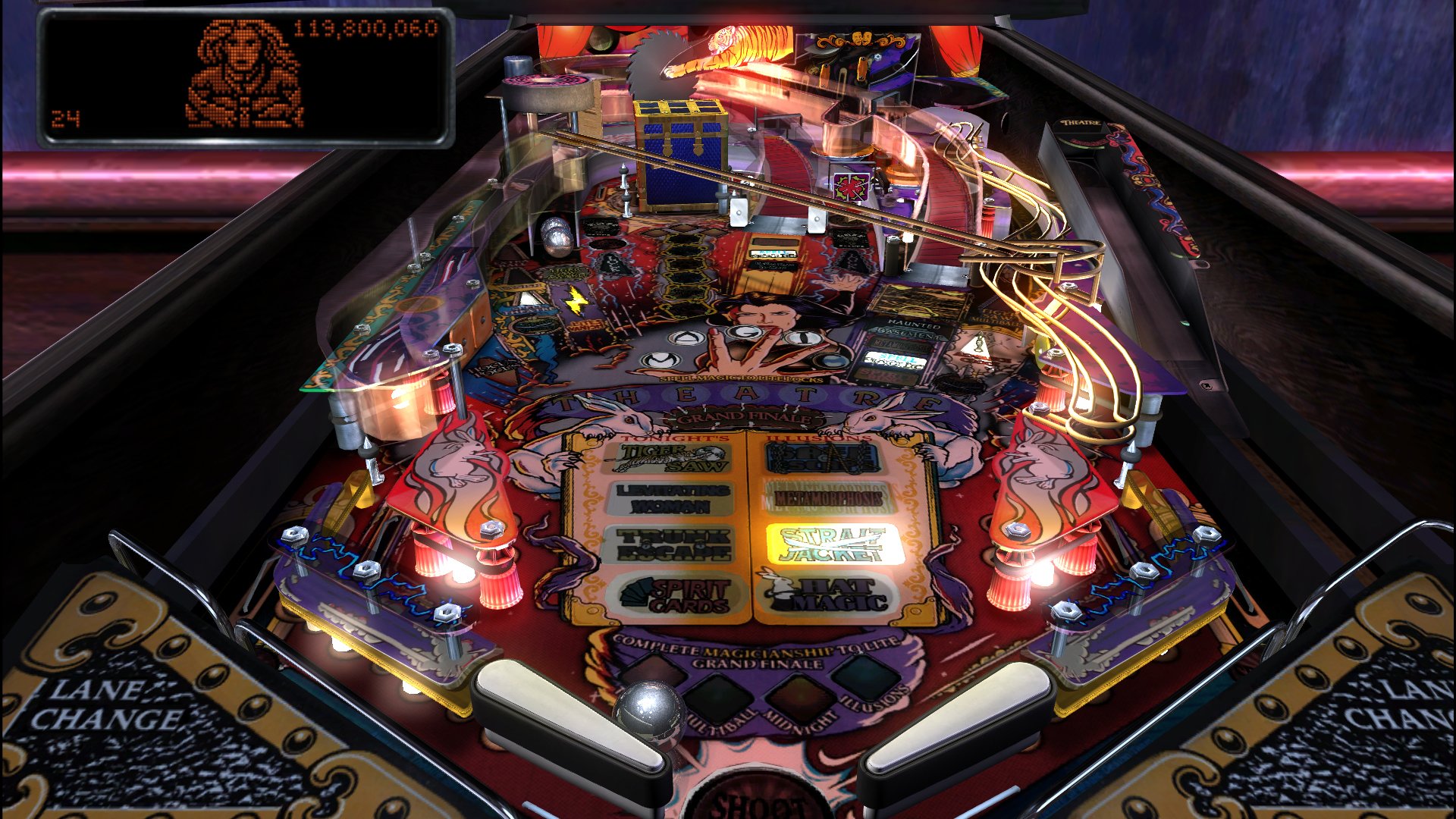
At the other end of the spectrum is Zen Pinball 2 (known as Pinball FX 2 if you're playing on a Microsoft platform), which crafts new tables from scratch that rival the classics in terms of gameplay flow and continuous excitement. Each one incorporates effects that are only possible in the digital realm - like handsomely animated, fully voiced characters who bound around the table during play, or point tallies that pop up out of the targets right when the ball connects - while still adhering to the core principles of smart, physically possible designs, like ramps and loops that let you alternate between flippers, or shots that can be hit consistently once you've developed the requisite finesse. Best of all, developer Zen Studios scored some killer licenses to provide the table themes, including (but not limited to) pop culture icons like Star Wars, Marvel comics characters, and South Park, as well as megahit games like Portal, Plants vs. Zombies, and Telltale's take on The Walking Dead.
Sign up to the GamesRadar+ Newsletter
Weekly digests, tales from the communities you love, and more
Name your modern gaming system of choice - console, PC, handheld, mobile - and I guarantee it's got access to either one or both of these excellent options. Unfortunately, they share the same imperfection that's sure to confuse newcomers: labyrinthine in-app purchasing systems that don't afford a shared collection between your chosen platforms. But both Pinball Arcade and Zen Pinball offer demos for every table, letting you try whatever intrigues you before you buy. Better still, they both include a most excellent table with the base download, free of charge. Pinball Arcade gives you the genie-battling fan favorite Tales of the Arabian Nights, while Zen Pinball offers the beginner-friendly, yet surprisingly deep Sorcerer's Lair table, on the house. These tables are perfect introductions to the joys of virtual pinball, dazzling you with flashy visuals, delightful sounds, and forgiving mechanics when you're first starting out, then providing hours of refined gameplay after you've gotten the lay of their miniature, ramp-filled land.
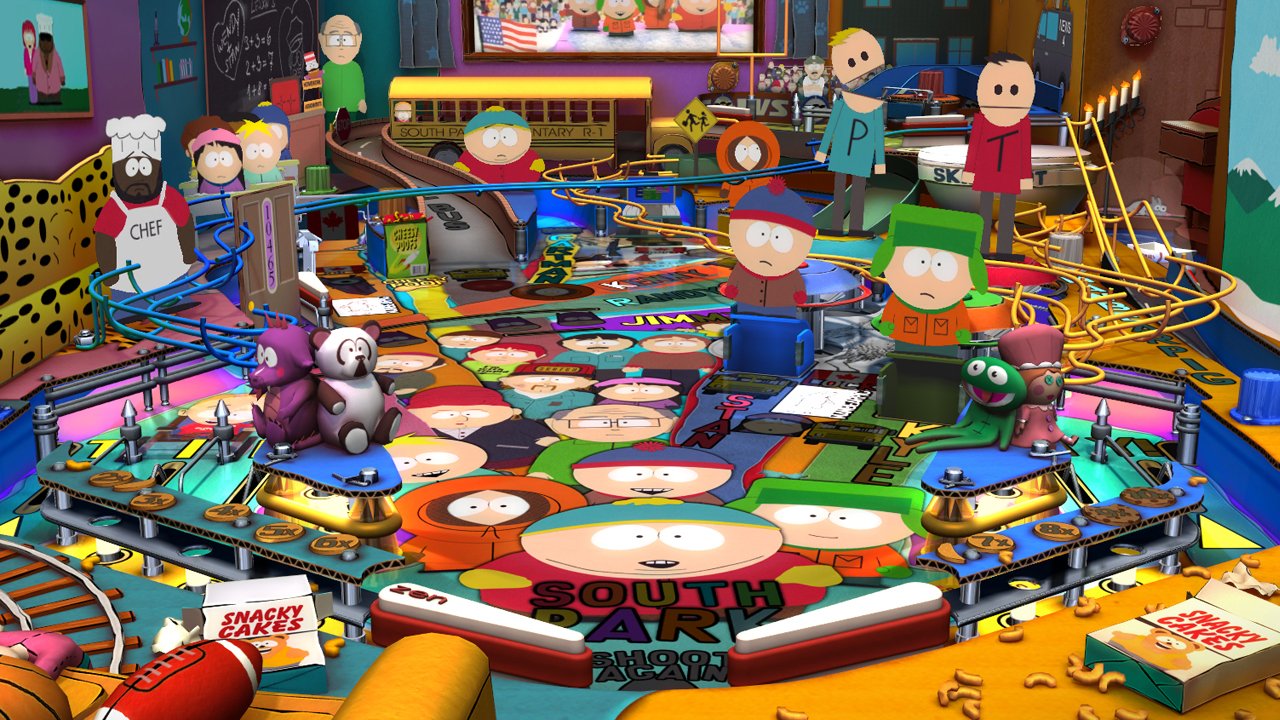
That's the thing: playing pinball can be a fun, frivolous break from another game, or an addictive pursuit of high scores that makes hours pass by like minutes. Learning how a given table functions is like mastering the intricacies of an intuitive combat system. You start with the basics and, after some firsthand experience, gradually learn to incorporate new techniques like cradling the ball with a flipper to give yourself a moment of reprieve before lining up the next shot, or gracefully nudging the table (with the analog stick, rather than the full, tilt-inducing force of your body) to avoid draining the ball in a dreaded outlane. And because these tables are digital, they're always running at peak performance, whatever time or day; no need to fret over weak flippers, playfields that aren't leveled properly, or the constant, meticulous upkeep of all the bits and pieces that make up these machines.
Even in a vacuum, these pinball experiences would be great - but nothing compares to getting hooked on a fiendish competition for the top spot of your friends list leaderboard. Like any good-natured rivalry, the constant need to edge out each other's high scores can push you into the upper echelons of understanding a game, making you see a table's layout in new ways or inciting the determination needed to reach - let alone 'beat' - the climactic 'Wizard Mode' finales that are only available once you've aced every other point-rewarding mission. At the time of this writing, I'm fixated on besting the Sorcerer's Lair high score of fellow editor (and apparent pinball expert) Iain Wilson - and the best part is, he probably has no idea any of this is even happening. But once I usurp his leaderboard throne (only a matter of time, since I refuse to stop until it's done), you better believe I'm putting Iain on notice, which will hopefully cause the process to start all over again on his end.
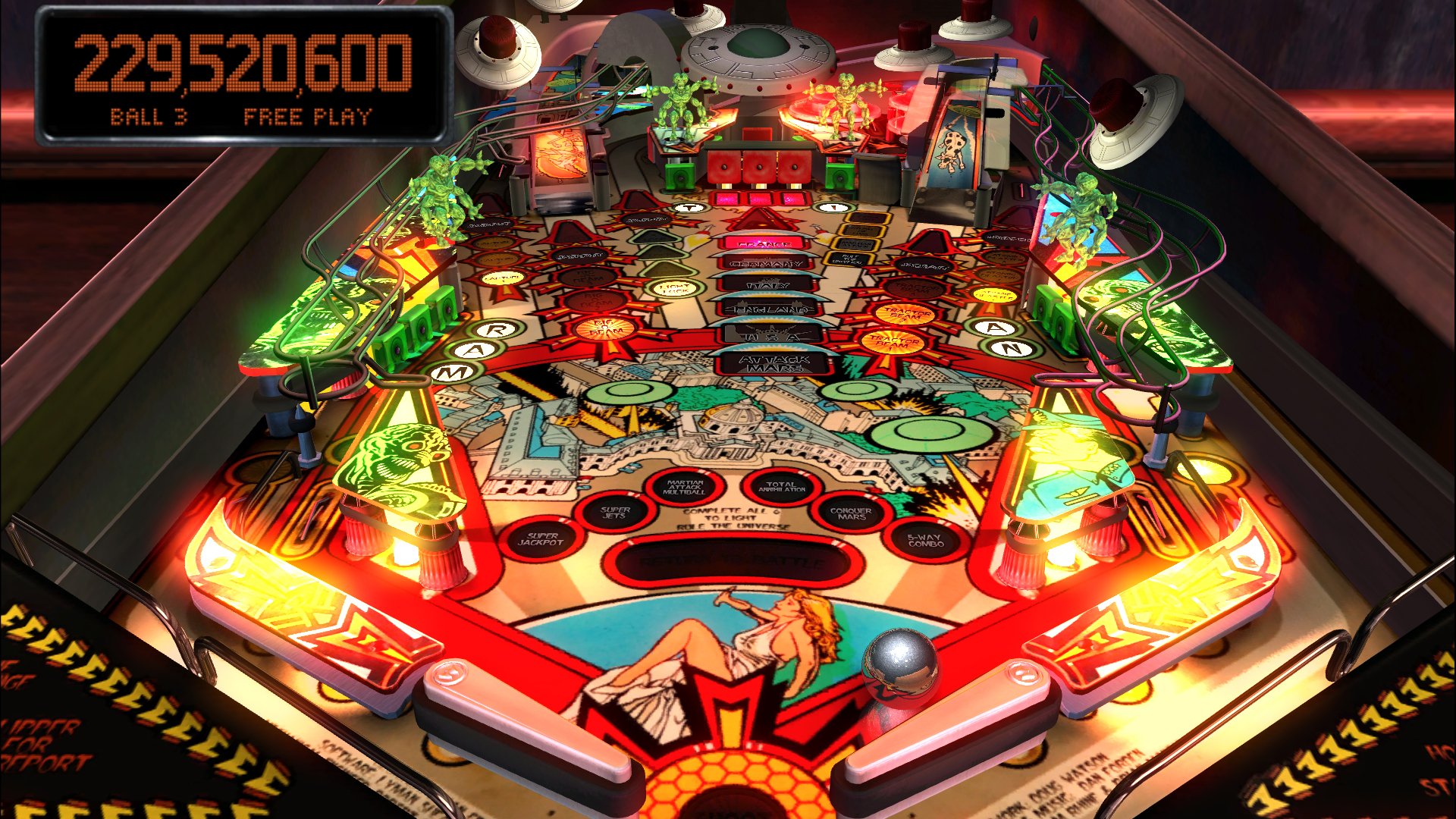
If you were ever turned off by pinball, virtual or no, I implore you to pick a table that appeals to you (or just stick with the free ones), carve out a little time for yourself in between all these big-budget, open-world games, and just get intimate with the inner workings of the playfield. As for table recommendations, I give two thumbs way up to Medieval Madness, Attack from Mars, and Theater of Magic in Pinball Arcade, and Plants vs. Zombies or any of the Marvel/Star Wars packs in Zen Pinball / Pinball FX. Even if you're initially intimidated, give yourself some time to get comfortable; to become one with the table. Hopefully, you can get a few friends to join you in this quest for pinball enlightenment. There's no guarantee that you'll love virtual pinball as much as I do, but your gaming prowess can only be enriched by a newfound appreciation for this classic variety of game, presented in glorious, contemporary fashion.
Lucas Sullivan is the former US Managing Editor of GamesRadar+. Lucas spent seven years working for GR, starting as an Associate Editor in 2012 before climbing the ranks. He left us in 2019 to pursue a career path on the other side of the fence, joining 2K Games as a Global Content Manager. Lucas doesn't get to write about games like Borderlands and Mafia anymore, but he does get to help make and market them.



